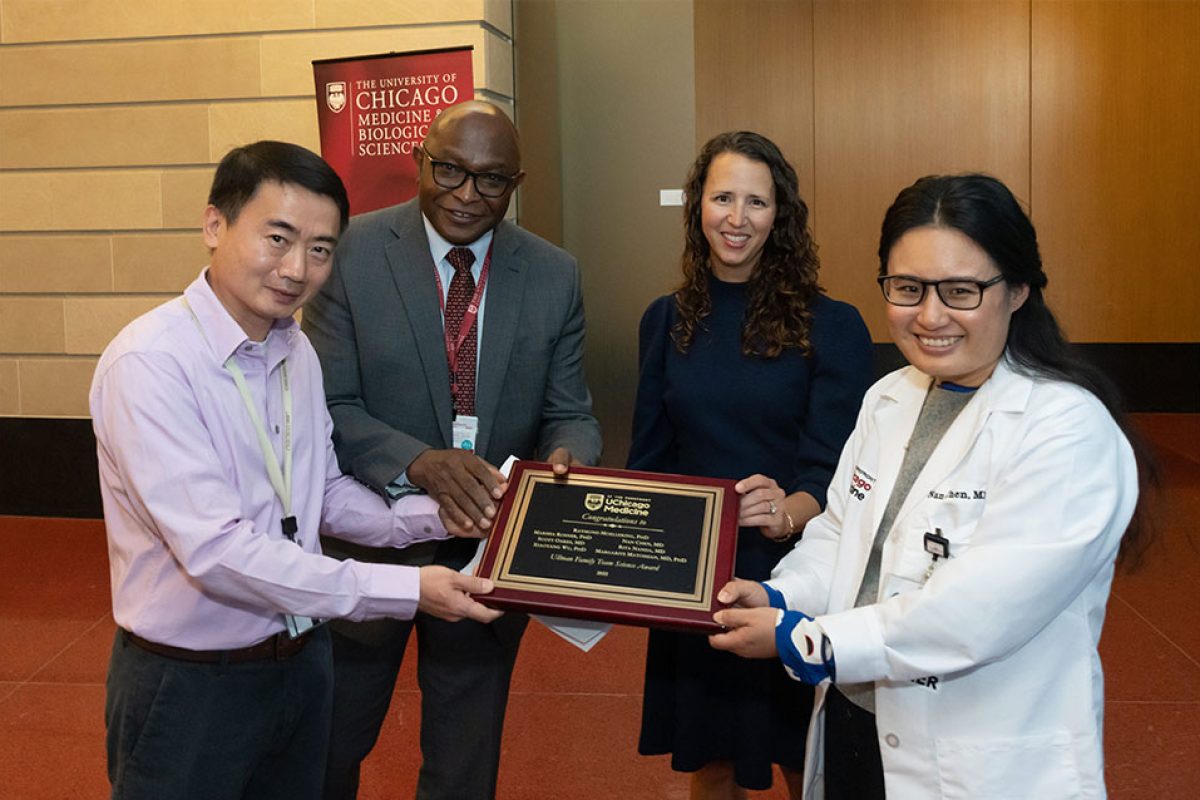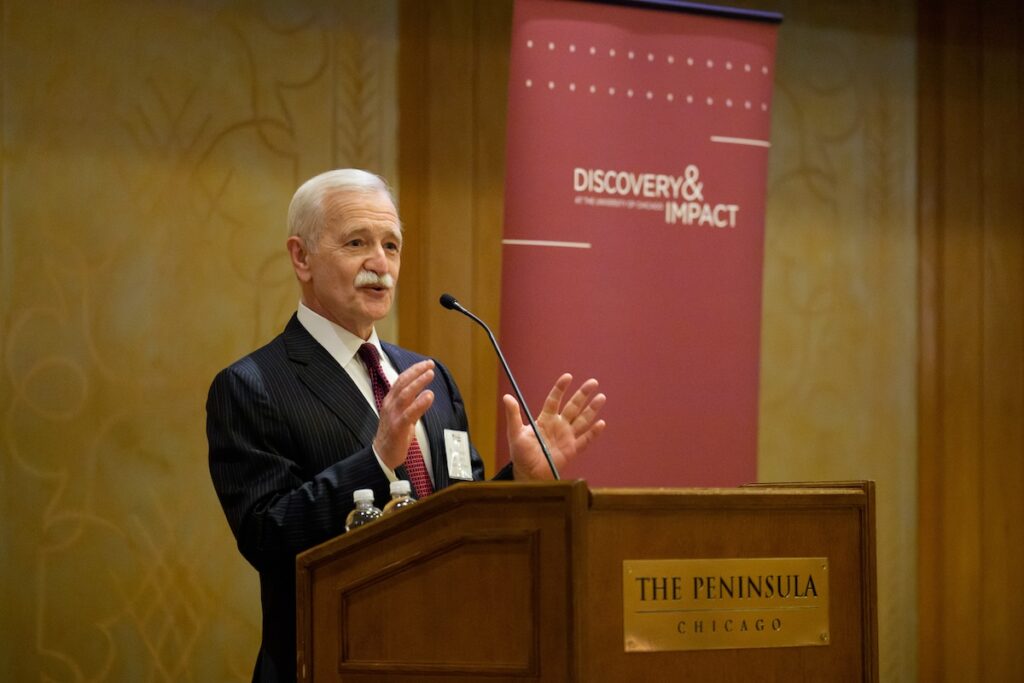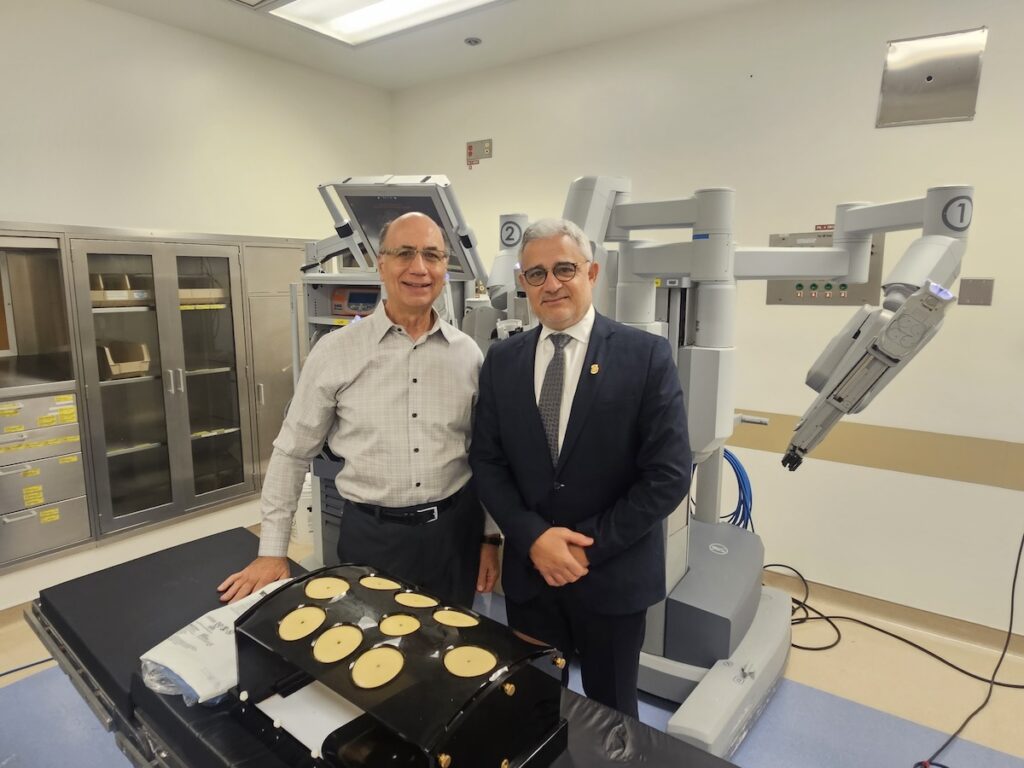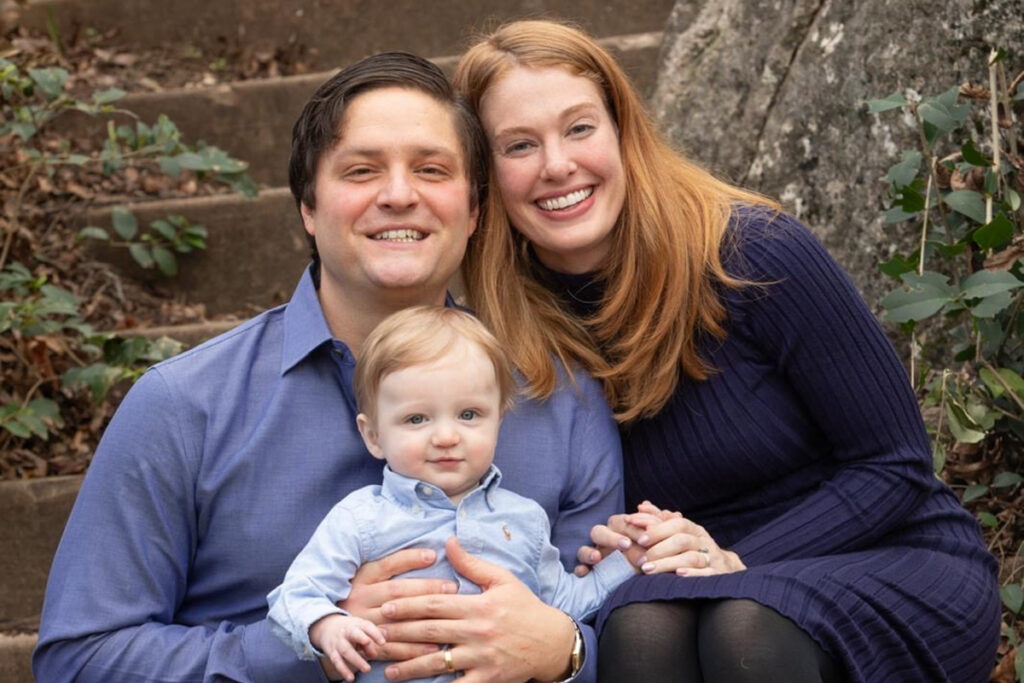The University of Chicago Medicine Comprehensive Cancer Center prioritizes “team science,” a strategy that brings together researchers with wide-ranging expertise to tackle complex questions about cancer. Team science can have a faster and larger impact than any one researcher working independently, potentially shortening the timeline from laboratory research to clinical trials. In September, seven researchers from diverse scientific backgrounds won the Ullman Family Team Science Award for a proposal to investigate novel therapies for triple-negative breast cancer, a particularly aggressive, hard-to-treat form of the disease.
The award recognizes investigators using team science to develop innovative approaches to treat cancer. The Ullman family has a long history of supporting cancer research at the University of Chicago. The award was presented in memory of Donald Ullman, who was diagnosed with cancer in 2009. He and his family turned to the University of Chicago Medicine and the outstanding care he received prolonged his life for four years, after an initial prognosis of only four months. In gratitude, the family established the Ullman Family Scholars Fund in Cancer Immunology, the Ullman Family Fund in Cancer, and the Ullman Family Team Science Award.
“One in two men and one out of three women will get cancer,” said Justin Ullman, president of the University of Chicago Cancer Research Foundation Board of Trustees. “I think about that when we gather as a family. Cancer has already taken too many loved ones from us.”
The winning team will study potential treatments for triple-negative breast cancer, so called because it lacks the three major breast cancer drug targets (estrogen receptor, progesterone receptor, and HER2 protein). Triple-negative breast cancer is notoriously hard to treat since it does not respond to hormone therapy or the targeted, anti-cancer drug Herceptin. Treatments are limited primarily to radiation and chemotherapy, which are hard on the patient. The proposed research project aims to gather preliminary data on a novel therapy and drug delivery system.
The team started by observing characteristics of aggressive tumors. In these tumors, identifiable proteins and transcription factors, the proteins that interpret genetic information from DNA, are produced to sustain tumor growth. The team is investigating both methods to block certain transcription factors and a cell-permeable drug delivery system, which they will test in models of triple-negative breast cancer. These pre-clinical studies have the potential to lead to a more effective and less toxic treatment of aggressive breast cancers than the current options, one which delivers the drug directly to a tumor and spares healthy tissue.
The investigation draws on the expertise of a seven-member team of researchers representing a range of disciplines. The team is jointly led by Raymond Moellering, PhD, associate professor of chemistry; Marsha Rosner, PhD, Charles B. Huggins Professor in the Ben May Department of Cancer Research; Scott Oakes, MD, professor and vice chair of research for the department of pathology; and Xiaoyang Wu, PhD, associate professor in the Ben May Department of Cancer Research. They are joined by colleagues who study outcomes for breast cancer patients, breast cancer cell biology, and clinical trials of breast cancer therapies.
The Ullman Team Science Award provides financial support to allow the team to collect the data necessary to compete for federal grants. For instance, a National Cancer Institute Specialized Programs of Research Excellence (SPORE) grant allows researchers to develop novel approaches for treating cancer and for improving patient outcomes. National Institute of Health Research Program Project Grants (P01s) support broadly based, long-term research programs involving groups of investigators. These grants are extremely competitive, and the Ullman Team Science Award gives the team the advantage of preliminary data and results necessary for successful grant applications.
Kunle Odunsi, MD, PhD, director of the Comprehensive Cancer Center, who announced the award, said the goal of the research is improved treatment for patients. “The ultimate yardstick of our work is to be able to help people.”




